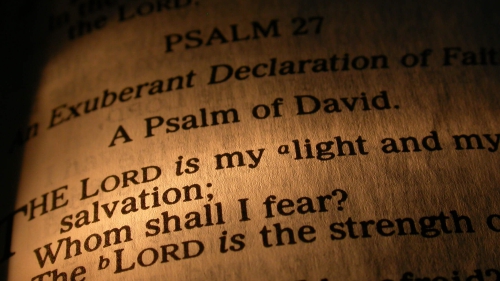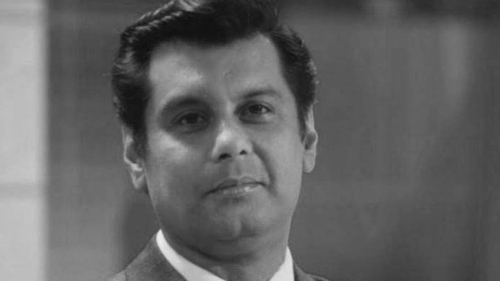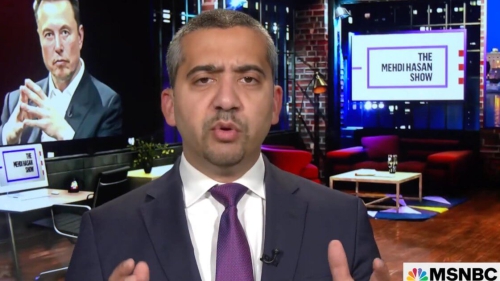Challenging Anti-Islamic Hate Speech
James George Jatras' recent derogatory remarks about Islam are part of a pattern of hate speech that demands a serious review and response by all people concerned.
Jatras is a foreign policy staff analyst for the Senate Republican Policy Committee (RPC). In a series of writings and talks that can only be characterized as bigoted, Jatras seems to have sought to deliberately slime Islam for what he called its "fraudulent self-depiction as a pacific creed." Most recently in an article written for the Orthodox Christian publication The Christian Activist, Jatras railed against Islam saying that the religion arose from "the darkness of heathen Araby" and that it rivaled communism as one of the "gigantic Christian-killing machines."
The Council on American-Islamic Relations (CAIR) protested Jatras' offensive and false remarks and called on RPC Chairman Sen. Larry Craig (R-ID) to fire him. Senator Craig declined to take any action, citing Jatras' right to free speech.
Jatras' anti-Islamic tirades are however, only part of a larger pattern of anti-Islamic/anti-Muslim rhetoric. One champion of this rhetoric is journalist, and self-styled "expert," Steven Emerson. In a spurious television "documentary" and a series of articles and speeches, including congressional testimony, Emerson has effectively equated Islam with terrorism. In the March 1995 edition of The Jewish Monthly for example, Emerson referred to the "level of vitriol against Jews and Christianity within contemporary Islam," and implied that Islam "sanctions genocide, planned genocide, as part of its religious doctrine."
What Emerson represents as an individual adversary, Facts and Logic About the Middle East (FLAME) represents as an organization. And its rhetoric is no less offensive. On August 10, 1998, U.S. News & World Report carried a 2/3-page advertisement in which FLAME referred to Islam as "virulent" (i.e., pathogenic, like virus, full of hate). It claimed that Muslims believe that "any act of violence is permitted and encouraged." The ad, paid for by FLAME, contained many other equally offensive remarks as well.
Scholarly parrots of anti-Islamic rhetoric include former MIT professor William Jay Jacob, who wrote about the Prophet Muhammad in his book Great Lives: World Religions in the following manner: "During his lifetime he (Muhammad) was a man who loved beautiful women, fine perfume, and tasty food. He took pleasure in seeing the heads of his enemies torn from their bodies by the swords of his soldiers. He hated Christians and Jews, poets and painters, and anyone who criticized him. Once he had a Jewish prisoner tortured in order to learn the location of the man's hidden treasure. Then, having uncovered the secret, he had his victim murdered and added the dead man's wife to the collection of women in his harem." Such commentary is no doubt offensive and downright inaccurate and unacceptable. Once challenged by CAIR, Jacob failed to validate his words and his publisher recalled all the books.
This type of rhetoric is hate speech par excellence, as it articulates irrational abhorrence for Islam and Muslims. Any expression that seeks to generate hatred, detestation or dislike is hate speech. It is legally defined in parts of the United States as any expression that is an "abusive, insulting, intimidating, harassing expression," or any discourse that "incites to violence, hatred or discrimination." But U.S. laws prohibit only three types of hate speech; those being group libel, harassment and incitement. The "group libel" law, for example, gives racial, ethnic and other groups the same right to sue for libel as individuals.
Even though regulations limit hate speech in other Western democracies, the First Amendment protects it in the United States. Debates surrounding the issue are inconclusive. Pro-regulation advocates believe that perhaps some degree of freedom should be sacrificed in order to ensure equality and protection for those that might be targeted because of race, religion or other unique personal or group characteristic. Anti-regulation lobbyists argue that free speech is a fundamental right that should not be limited in any manner.
In this ambivalent situation, hate speech thrives in the United States, emerging with various nuances and at times assuming a mythic stature. Myth is anything that people take for granted without questioning its social or political effects. Myth thrives on its own dynamic by being unquestioned and thus unnoticed and by being part of people's common sense assumptions. Myth makes things appear natural.
As an insidious myth, hate speech against Islam went unchallenged in U.S. public discourse until a few years ago. From classrooms to courtrooms, from Hollywood to the Internet, and from newspaper columns to the forums of think tanks, dispensers of hate speech against Islam and Muslims received little resistance. Even now, anti-Muslim hate speech occasionally erupts despite recent pushes for political correctness and discourse on cultural diversity.
The only way out of the quagmire of hate speech is through increased political activism. Once Muslims gain political clout, Senators will listen to them and fire future Jatras-like offenders. Muslims already have considerable political muscle. Now is the time to flex it by communicating, voting, funding elections, and in doing so, making it clear there are certain things for which Muslims simply will not stand.

















